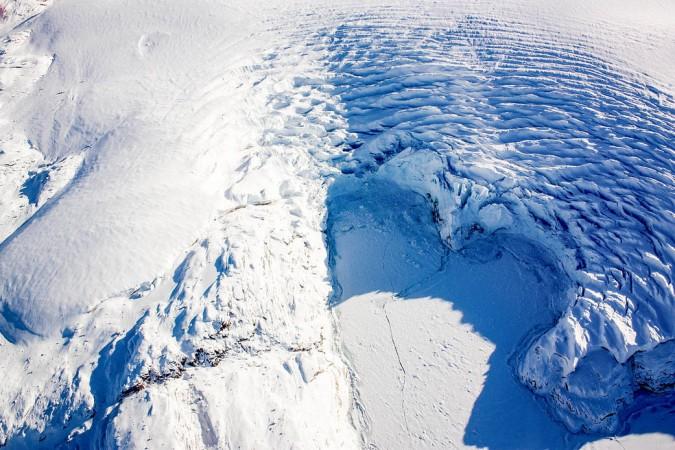
- Emissions from the past have already set glaciers on a path of melting that cannot be stopped
- Even if all pollution stops completely, it will make no difference
- In a hundred years, a car travelling 500 meters will cost the Earth one kg of glacier ice
- Paris Accords will still stay relevant in the long run say scientists
Melting of glaciers cannot be stopped this century as humanity has passed the point of no return. The effect of human activity in the current period will have catastrophic consequences in the next century.
Melting cannot be slowed down or restricted, say, researchers, even if all emissions now are completely stopped because glaciers react slowly to changes in climate. By the next century, driving 500 meters in a mid-sized car will cost the Earth one kg of glacial ice, notes a report by Phys.org on a study published in Nature Climate Change.
The study was conducted by a team of researchers from Universities of Bremen and Innsbruck, notes the report. Researchers wanted to answer one simple question based on a premise where the Paris Accords are actually met and the global average temperatures rise is somehow kept to below a maximum of 2 degrees or an optimistic 1.5 degrees above pre-industrial levels. What would this mean for the evolution of glaciers in the world's oceans?
What would the success of this plan mean for the evolution of glaciers?
Researchers began to investigate this question by making calculations on what would happen to the progressive melting of glaciers if these climate goals are met.
"Melting glaciers have a huge influence on the development of sea level rise. In our calculations, we took into account all glaciers worldwide—without the Antarctic and Greenland ice sheets and peripheral glaciers—and modeled them in various climate scenarios," explains Georg Kaser from the Institute of Atmospheric and Cryospheric Sciences at the University of Innsbruck.
One kg of carbon dioxide costs the Earth 15 kg of glacier ice. So it makes no significant difference to the development of glacial mass loss over the next 100 years, the study found, whether temperatures rise by 2 degrees or 1.5 degrees.
"Around 36 percent of the ice still stored in glaciers today would melt even without further emissions of greenhouse gases. That means more than a third of the glacier ice that still exists today in mountain glaciers can no longer be saved, even with the most ambitious measures," says Ben Marzeion from the Institute of Geography at the University of Bremen.
This, however, does not in any way mean that the Paris Accords can be ignored, say the researchers because what is done now, in the current, will make a difference in the next century. "Glaciers react slowly to climatic changes. If, for example, we wanted to preserve the current volume of glacial ice, we would have to reach a temperature level from pre-industrial times, which is obviously not possible.
"In the past, greenhouse gas emissions have already triggered changes that can no longer be stopped. This also means that our current behavior has an impact on the long-term evolution of the glaciers—we should be aware of this," explained Kaser.

















